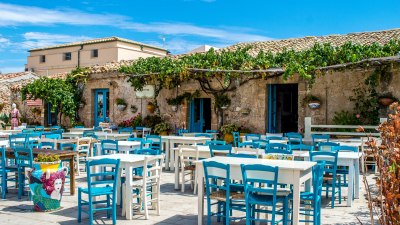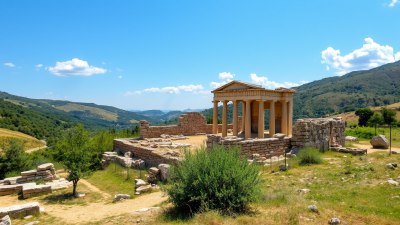Where Empires Collide in Kavala, Greece
Explore Kavala, Greece, a historical hub where empires met and cultures blended over centuries.

Kavala, a picturesque city in northern Greece, is steeped in rich history and cultural significance. This coastal gem, once known as Neapolis, is strategically located at the crossroads of ancient trade routes and has been an important port throughout various historical epochs.
Ancient Beginnings
The history of Kavala dates back to ancient times. Its roots trace back to the Macedonian era, where it served as a crucial harbor for the nearby city of Philippi, the site of the famous battle between Julius Caesar and Pompey. As a part of the Roman Empire, Neapolis thrived, facilitating trade and movement across the Aegean Sea. The remnants of Roman architecture, such as aqueducts and theaters, still stand today, offering a glimpse into the city’s glorious past.
The Byzantine Era
As time moved on, Kavala shifted under the influence of Byzantine governance. This period was marked by significant cultural and religious transformations. The establishment of churches and fortifications exemplified the city's importance within the empire. The iconic Kavala Fortress, which dominates the skyline, stands as a testament to the city’s resilience and strategic significance during the Byzantine Empire. Visitors can explore this ancient fortress, which was built in the 15th century, offering panoramic views of the city and the Aegean Sea.
The Ottoman Influence
In the 14th century, Kavala came under Ottoman rule, which ushered in a new era of architectural and cultural evolution. The influence of the Ottomans is vividly seen in the city's skyline, characterized by elegant mosques, fountains, and bathhouses. The Imaret, a former Ottoman mosque turned cultural center, is a remarkable structure that symbolizes this period. Today, it serves as a hotel and restaurant, providing insights into the city’s rich multicultural tapestry.
Cultural Convergence
Kavala stands as a confluence of various cultures, evident in its architecture, cuisine, and traditions. The city’s unique blend of Greek, Roman, Byzantine, and Ottoman influences creates a vibrant cultural mosaic. As a result, visitors can relish a diverse culinary landscape, from fresh seafood and traditional Greek meze to Middle Eastern delicacies that reflect the city's cosmopolitan past.
Modern Kavala
Today, Kavala is a thriving city that skillfully balances its historical heritage with modern life. The charming old town, with its cobbled streets and neoclassical buildings, beckons visitors to explore its numerous shops, cafes, and restaurants. The waterfront promenade is perfect for leisurely strolls, offering stunning views of the sea and the surrounding landscape. The annual Kavala Festival further celebrates the city's rich history and cultural diversity through music, dance, and art.
Exploring Surroundings
Beyond the city limits, Kavala serves as a gateway to explore ancient ruins and stunning landscapes. The nearby archaeological site of Philippi, a UNESCO World Heritage site, is a must-visit for history enthusiasts. Here, visitors can wander through the ruins of ancient theaters, basilicas, and the famous prison of Apostle Paul. Additionally, the pristine beaches of Halkidiki and the tranquil landscapes of Mount Athos offer ample opportunities for outdoor adventures.
In conclusion, Kavala, Greece, stands as a testament to the historical interplay of civilizations. From its ancient beginnings to its contemporary charm, the city offers visitors a unique glimpse into where empires collide. With its rich cultural heritage, breathtaking scenery, and warm hospitality, Kavala is a destination that captivates the hearts of all who visit. Whether you are wandering through ancient ruins, savoring local delicacies, or simply enjoying the serene coastal views, Kavala promises an unforgettable experience that bridges the past with the present.











